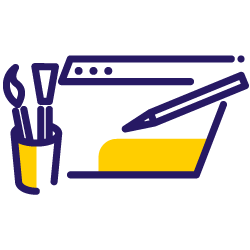We spoke with Hèctor Herrera, SEO Manager at Vime Digital, as part of our project to share what Oncrawl users are doing in SEO in their day-to-day jobs.
Hèctor Herrera from music production to SEO agency
“Back in 2010, it was my first time touching a website. I started reading about something called “SEO”, then bit by bit I started applying those techniques on the website of our brand-new digital media school. We started to rank, not just locally in Barcelona, but also at national level, and even internationally. Then we used SEO to scale up our offer of courses and services.”

Hèctor began his career in SEO about eleven years ago — but not intentionally. When returning from living abroad in China, he found work with friends who had started a digitalmedia school. Working on the website naturally led him to SEO, where he’s remained ever since.
After nearly eight years of experience as an in-house SEO, and work in some previous agencies, Hèctor is now SEO Manager at the Vime Digital agency .
The appeal of Agency SEO
“I wanted to work in an agency and see how everything is done inside an SEO structure.”
As a self-taught SEO working in-house, Hèctor was interested in learning how SEO was organized and practiced in agencies whose business model was built on being able to sell and industrialize SEO. While we often hear of SEO specialists moving from agency to in-house positions, Hèctor’s experience shows that both types of jobs can have their advantages.
Hèctor: SEO, inside of an SEO agency, is stricter. I started working with an agency called Big SEO. It was really cool at that time because we did a lot of experimenting and did different projects alongside the work for our clients. We made our own websites, tested and broke websites, we did a lot of different experiments. It was really cool because they were really open-minded. We were encouraged to try new things, to explore new things and to go further.
The importance of experimentation in SEO
During the time we spent speaking to Hèctor, one of the ideas he came back to the most was the importance of being able to experiment in SEO. He explained a few uses for experimentation and why they are so important for how he works.
Know what works before applying it to client sites
Hèctor: I think it’s really important, even working in an agency, to spend some time doing some research, experimenting, doing tests. If you test something and it works, then you can apply it to a client, if it’s necessary.
Keep up with changes in the industry and the technology
Hèctor: As you know, technology is constantly changing . You have to stay on top of it and be a bit of a geek.
Furthermore, you need to spend a lot of time self-teaching, reading, watching webinars or tutorials and conferences.
In agencies, the owners should ideally give you the time and the opportunity to experiment. I think Google does the same. People have 20% or 30% of their time just to test new possible ideas or do some research or experiments.
What makes Enterprise SEO different?
Hèctor has worked on some very large projects and this is one of the things he cited when we began to talk about SEO challenges that he has faced. But not all large projects present the same challenges as websites for enterprise clients. Enterprise SEO usually involves increased complexity on many levels: inter-departmental coordination, non-standard CMSs and even legacy website platforms.
Hèctor: One of my current challenges at the agency I’m working for now is moving to an enterprise level. I’ve worked with enterprise websites before, but if you are in an agency, normally you can’t spend all your time on the website. They just sold a “10 hour per month package”, so that’s all you can do. In my case, it is a kind of in-house project, so I can spend much more time digging deeper and working closer with their internal teams, such as content, PR, developers, commercial, IT, etc.
Oncrawl: What were some of the things that you had to learn when you started working on big enterprise sites that were different or surprising?
Hèctor: In this case, our agency is looking to expand beyond its traditional poker, online casino and online sports gambling profile. Our offer has been based just on SEO and outreach and we want to expand our services and our client portfolio. My new role was a challenge because right now, I’m working the way I would if I were an in-house SEO. I have plenty of time to dig deeper into much more technical stuff and experiment with so many other factors such as UX, NLP, CRO, copywriting, search intention and site performance; this all mixed with technical SEO. Handling so many new and different things at the same time is amplifying my overall approach.
It’s not just typical technical SEO where we have a broken hreflang tag or a 5xx response code, we have to fix it, and that’s all. Instead, we need to think about how the user is going to use our website, try to make them spend more time on site, funnel them and make people navigate through different pages until we get an action, ultimately giving better UX signals to Google and improving our conversion rates at the same. So, all those tests give us a lot of insight. Even if you’re not creating more content or external links, you’re still improving the experience of the user which will get better rankings at the end in some scenarios.
APIs and how information is handled
Hèctor: Another challenge with enterprise sites is often that you have more technical elements to consider, especially performance indicators, like Page Speed Insights or Google Core Web Vitals metrics, all of which are based on many different templates of pages/URLs, different setup of the servers, JS usage, third party scripts, rendering, etc. There’s also the issue of how they manage the information: if they are using different APIs in order to get information from other sites or internal APIs based on subdomains.
Legacy website structures
Hèctor: Right now we are re-writing the site, the front-end and the back-end. We are going to change the CMS because it’s really old and difficult to work with.
On one of the sites that I’m in charge of, it’s 20 years old; it was created from different types of coding. At first, we were just going to hire new devs, but a lot of our candidates are very young devs and aren’t familiar with that type of code. We’ve had to look for new people who can re-write the whole site.
Seasonal events and log monitoring
When experimenting, Hèctor uses log monitoring and seasonal events to understand how Google approaches the sites he’s working on and then looks at different ways to manage how the site presents information to Google. Since many of these sites receive a lot of attention from Google, strategies to manage crawl budget can have a significant effect. For Hèctor, this can include choosing the right internal linking and optimizing the information architecture, deciding if it’s necessary to create or update any content hub, including single pages like how-to guides or even using microsites to guide Googlebot as much as possible.
Since seasonal events provide an influx of attention and visibility, but don’t necessarily affect the day-to-day performance of the website, they’re ideal moments for testing out a new strategy.
Oncrawl: What SEO projects are you enthusiastic about at the moment?
Hèctor: I’m a crawl budget geek. I wanted to investigate what’s going on when a lot of traffic is going to a specific section of the site, how Googlebot’s behavior might change visiting these specific pages and/or not visiting other important pages of the site.
[Case Study] Increase crawl budget on strategic pages
Improving crawl budget by consolidating content
Hèctor: On one of the sites I work with, I wanted to run a lot of crawl budget tests during one of the biggest events of the year, the Cheltenham Festival. Unfortunately, we weren’t able to do it this year. At the moment, we can’t upload our log files automatically in Oncrawl because our server system is really complicated: we get data from different servers. I’m pushing the Dev team to get this done before our next big event because we are planning to run another experiment.
The Euro Cup is upon us and, for example, there’s a page for the England-versus-France match. Then we have sub-markets such as: /winner or /who’s-gonna-score, etc. It’s a kind of silo, but often that cannibalizes the main landing page. And think about it, multiplying this by all the championships and matches around the world, it’s too many URLs.
What we plan to test is merging all this information inside one landing page so you can get all that content in one page, thereby improving our NLP and drastically optimizing your crawl budget. We hope we’ll see users spend more time on the page and, semantically speaking, it is also going to improve the landing page a lot. So, we are going to avoid cannibalization and reduce the volume of URLs, giving to the user a better experience while focusing on the main transactional markets and submarkets with decent search volume and conversion.
My plan is to collect and archive the current data for different segments of the website. Then, once we have done some tests and everything is running smoothly, we are going to launch the new landing pages and then compare what happened.
Crawl budget and redirect strategies
Hèctor: In the case of the Cheltenham Festival, we are creating loads and loads and loads and loads of URLs. Then, we’ll have loads and loads and loads of 301s. So, I would like to analyze this properly and find a way to delete those URLs. If we have useless 301s that don’t have external links, delete those 301s and give a 404 response. Then it’s going to get them out of the Google index.
The impact of microsites and navigation on crawl budget
Hèctor: I also plan to keep improving the crawl budget and drive Google bot where I want, to recommended URLs. For example, we have microsites within the website of major events. These microsites have their own level, different menus, etc. I started working on managing crawl on these microsites through internal linking, but I created a specific footer. We have the main navigation and we have the headers and that kind of stuff, so I know Googlebot is somehow escaping. Unfortunately, I don’t have a way to monitor how at the moment. If we can analyze log files in real time, even better.
Gathering data through A/B testing
Hèctor: Another idea is to create an A/B test and maybe look at what’s going on from a log monitoring point of view, you know, more opportunities to get more data. We can use different types of events to test this: for example, the US Masters. We are not a super authoritative site in the tennis sector. If we don’t have any horse racing even close to that event, let’s see how we can drive all that crawl budget to that specific event and then send it back to our main sections.
Using log monitoring tools
Hèctor: In order to find the best way to do this, we need an SEO log monitoring tool. I tried to do it manually, but we are using Kibana. It is not for SEOs, it’s more for the dev team.
We manage a huge volume of data. I know Oncrawl is a tool that can give you a lot of data and a lot of new opportunities and it’s really granular, as well as modular.
It has a learning curve because you can get so much data from the log monitoring, the Search Console, the Analytics, the crawler, etc. I think it’s going to be great for us.
I want to sit down with my colleagues, set things up and get familiar with the software. I know we can get a lot of insight and go further with all that information.
The key themes in the future of SEO
“I like to keep learning something new every day. That’s why SEO is something really cool to me.”
There’s always something new in SEO, but Hèctor also sees a trend towards a more significant change, moving towards a focus on user experience and intent for individual users. This means expanding his toolbox as an SEO to include peripheral skillsets and a better understanding of fields like conversion optimization, user experience and data science.
User Experience
Hèctor: We have an IT team and an SEO team and we work in parallel. Mobile first is still going on. It was launched a long time ago, but it has not totally been implemented worldwide. I want to be ahead and as we are rewriting the site, I’ve been pushing with Google Page Experience. Why? Because besides technical SEO and the basic “old school” SEO, I think the future of SEO will be based on the user experience.
That is one reason that this year I’d like to do a master’s degree in user experience and conversion: in order to get a better understanding of those types of departments and to better understand their roles and how they will fit in with SEO.
Data Science
Hèctor: In the near future I’m also thinking of studying Data Science in order to have a better understanding and make better business decisions based on the data. With this type of challenge, what I like the most is that you have to think outside the box. SEO is not just creating a piece of content and internal links and external links. We also want to give users the best experience possible in mobile, tablet and desktop.
Oncrawl: I think it’s interesting that you mentioned data science in conjunction with business decisions. Are there areas where you already see that business decisions could be influenced by SEO?
Hèctor: There are new business opportunities with data science. As an agency, machine learning and artificial intelligence are value-added proposals we could offer.
For SEO, if we take a big website and use machine learning, we look at what’s happening with user behavior and as a result we can give them a better experience offering. For a gambling website, that might mean better slots, different types of games, poker strategies, etc. I think this type of granular analysis will be really important in the near future.
Search Intent & Personalization
Hèctor: Everything is going to be centralized around the user, so it’s going to be really personalized, like Google results as well. It’s always been that, but I think that’s going to make traditional SEO very difficult because what we do is based on how Google treats a query. If queries are now personalized there is no sort of set of queries to respond to.
It’s going to evolve. Many people are going to make the same queries, in the sense that the search intention is going to be the same. But what happens once they get into the website? The experience is going to be really different for each person. To avoid cloaking, the first landing page is going to be the same, but once they start navigating the site, we’ll decide what to show each person, thus creating a personalized experience.
[Case Study] Refine your SEO strategy based on relevant data and granular segmentation
Preparing for changes if you’re working in SEO
Oncrawl: If you had to give advice to somebody who was just starting out in SEO today, what would you want them to know?
Hèctor: You need to have a specific personality: you have to keep learning every day and to like spending time doing research and looking outside the box. Think about what SEO is going to look like in one year, in five years or even in 10 years. It’s going to be different, so you’ll need to do some research.
Oncrawl: If you had to take your own advice, what do you see in the future?
Hèctor: Where is SEO going in the next five to ten years? SEO in the future is going to be a mix between… I wanted to say “normal SEO” but normal SEO doesn’t exist anymore. SEO in the future will be based on search intention. Then, once they get into your site, SEO will determine how you manage the user: user experience based on machine learning.
Takeaways from chatting with Hèctor Herrera
Hèctor’s experience shows that for some SEO positions, your greatest asset is an open mind and the ability to learn. Those SEO predictions posts? They might be less click-bait and more a symptom of how successful SEOs think: by looking to the future and planning for changes.
Hèctor’s experience also shows how he’s built a deep understanding of how SEO works based on hands-on experience in different industries, different contexts and across a period where SEO and search engines have undergone profound changes.
Finally, both in agencies and in-house, successful SEO strategies will still have a dual focus:
- On users: where user experience, page speed, mobile optimization and user intent come into play.
- On bots: by improving crawl budget and access to information by search engines.
We’d like to say thank you again to Hèctor Herrera for taking the time to talk with us and for sharing his views on the day-to-day issues faced by SEOs everywhere.

